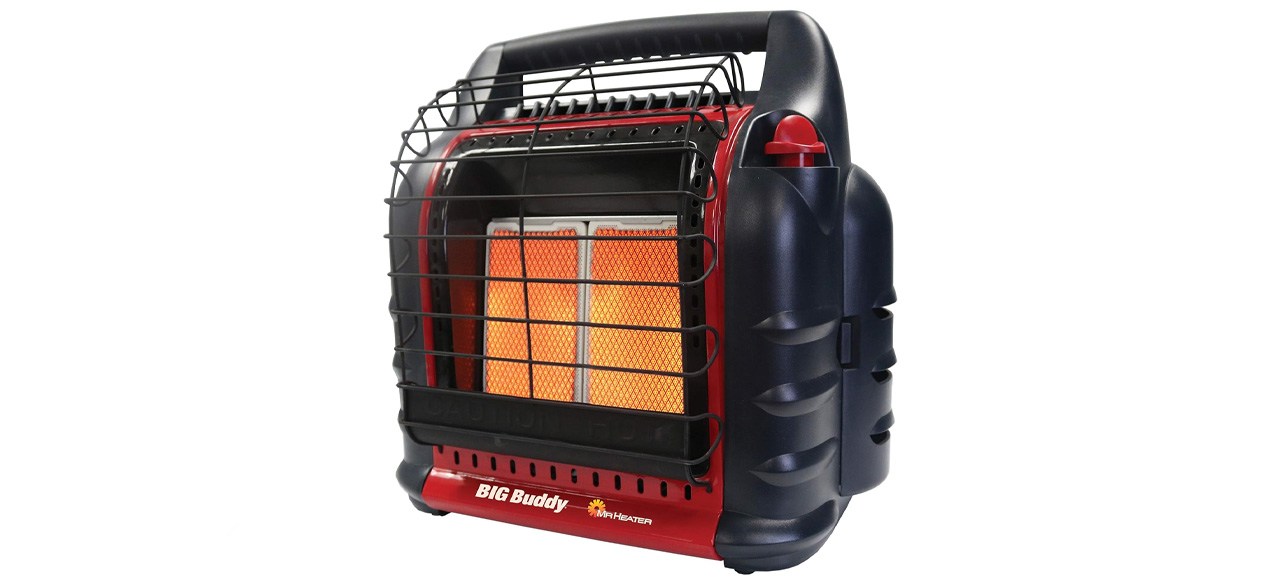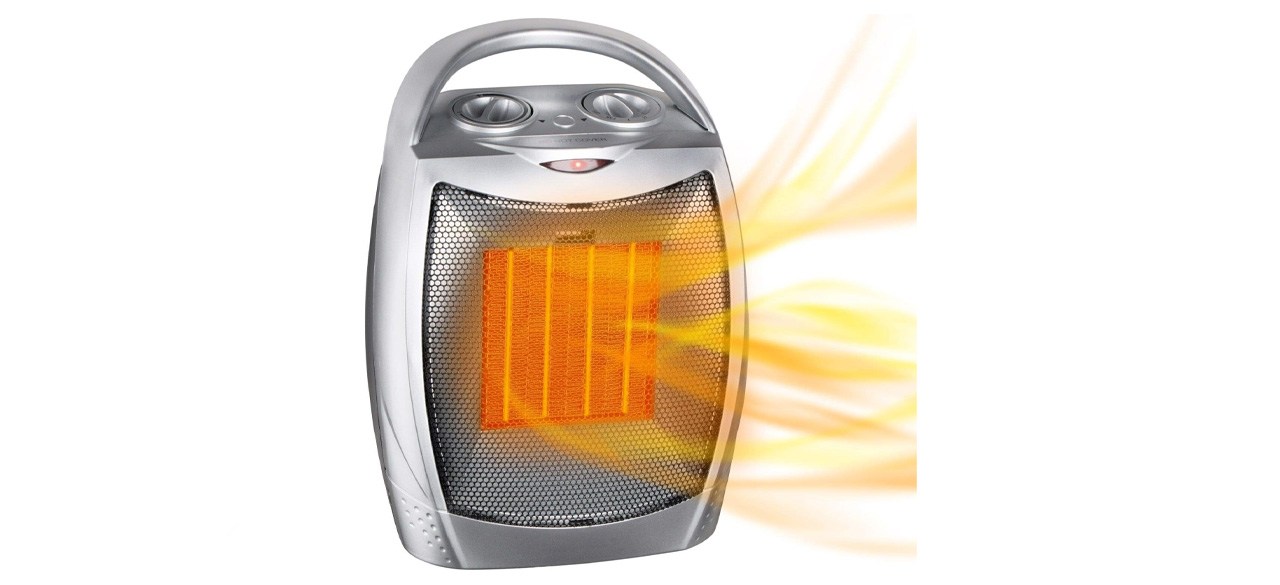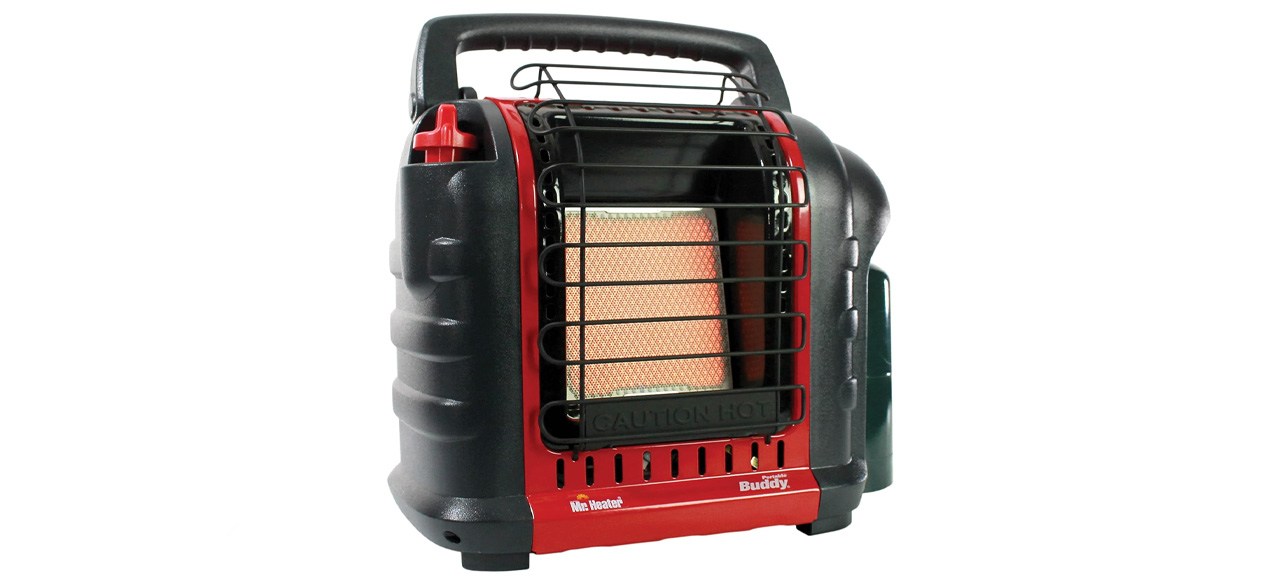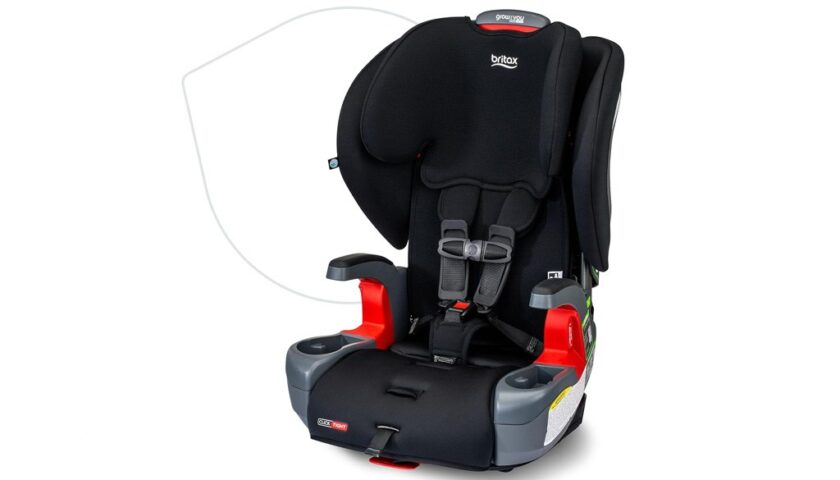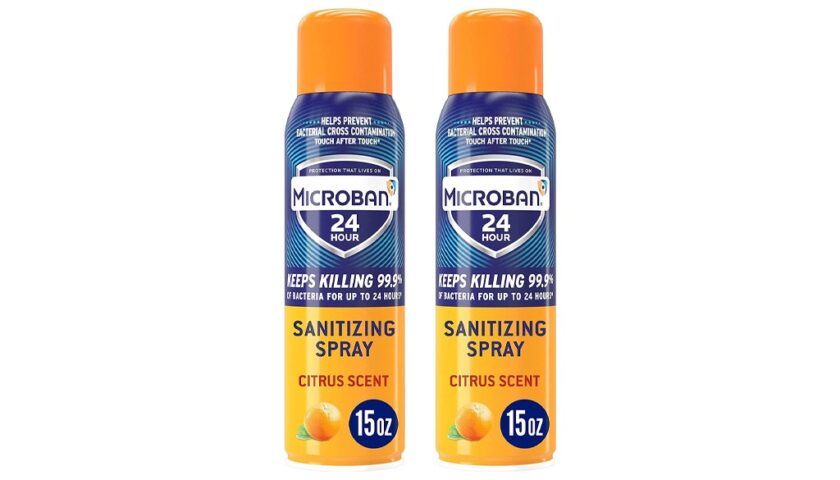Which tent heater is best?
If you’re a camping lover, you may feel inclined to put your passion on hold until the weather warms up again. But that’s not necessary! Just because the climate is frigid doesn’t mean you have to postpone your adventures. All you need is a quality tent heater to bring more warmth to your camping excursions.
While there are a variety of tent heaters available, be sure you check out the favorite Mr. Heater MH18B Propane Heater for its safety features and powerful heat output.
What to know before you buy a tent heater
Safety first
Tent heaters are a wonderful invention for heating during adventurous camping trips. When used correctly, with safety at the forefront, tent heaters are a wonderful addition to winter camping. However, they can be extremely dangerous when mishandled. Not only do you want to preserve your favorite tent and all your camping supplies, but it’s necessary to keep yourself and any camping companions safe. Always follow safety precautions when using a tent heater. An automatic shut off and oxygen monitor are essential to prevent fires and asphyxiation.
Power source
You have several options when it comes to powering your tent heater. Gas and electricity are the most common, but you can also find battery-operated heaters or ones with solar panel charging. Gas heaters should only ever be used in tents that have plenty of ventilation. It’s valuable to have a carbon monoxide detector on hand when using a gas heater, even if the heater monitors oxygen levels. Consider where you plan to camp, since some campsites may have power outlets available for you to use but rural camping spots may not.
Usage and placement
When you get out in nature and are ready to use your heater, be sure to do so competently. Follow the user manual for proper setup, take-down and use. Pay attention to any manufacturer safety tips or recommendations. Always leave at least 3 feet of space between the tent heater and anything potentially flammable. Ignitable items may include tent walls or ceilings, sleeping bags, backpacks, clothes, food and bug sprays.
What to look for in a quality tent heater
Heat output
The best tent heater for you will provide the amount of heat you need for the square footage of tent space. You want to stay warm but don’t need anything oversized. Usually, gas heaters provide more energy-efficient heat, though electric heaters are safest.
Operation time
It’s important to know how long your heater will run since you want to stay warm throughout the entire night. Solar- or battery-operated heaters tend to have the shortest operation time, while gas heaters can run as long as you have fuel. An electric heater with a power cord can run endlessly as long as you have a power source.
Size
The ideal size for your tent heater depends on your camping style. If you have a lot of hiking planned, then you may have plenty of gear to carry. This will make a large, cumbersome tent heater undesirable. You want something smaller and portable that’s easy to carry. On the other hand, if you’re pulling up to a campsite in your car, you can get away with a weighty, heavy-duty tent heater.
Noisiness
While you may use your heater during the day, campers tend to use their heaters overnight. Some heaters can get loud during operation, which disturbs light sleepers. Powerful heaters provide the most heat but also produce the most noise. A smaller heater may provide less heat but will operate quieter. Consider your priorities as you shop.
Safety
The best tent heater will add the least amount of fire risk to your tent. Examine the safety features included in your heater so you know what to expect.
How much you can expect to spend on a tent heater
You can find a reasonable tent heater for $30-$200.
Tent heater FAQ
Are tent heaters safe?
A. While some units are made with modern safety technology, no tent heater is 100% safe. When you have a little box creating heat, there is some risk of fire damage or even carbon monoxide buildup. Electric heaters tend to be the safest, but even these have some fire risks.
How do you heat a tent without electricity?
A. A propane heater is a great way to heat your tent if you don’t have electricity available. You can also boil water over the fire, pour it in a water bottle and shove it in your sleeping bag to increase warmth. Heating rocks is another way to warm your space. Always be sure to pack insulated clothes and sleeping bags during cold camping trips.
What’s the best tent heater to buy?
Top tent heater
Mr. Heater MH18B Propane Heater
What you need to know: If you’re looking to heat a large tent or even keep the area around your campsite toasty, this heater emits 4000-18000 BTUs per hour for proper warmth.
What you’ll love: This tent heater will keep your tent cozy all night and can heat up to 450 square feet. With high, medium and low settings, it’s suitable for a variety of temperature preferences. Sleep easy, knowing the safety system will shut off should the unit tip over or detect low oxygen levels.
What you should consider: Take note that this product no longer comes with an included fan assembly.
Top tent heater for the money
Portable Electric Space Heater With Thermostat
What you need to know: Adjust this heater’s thermostat to keep your tent comfortable throughout the night.
What you’ll love: A multi-protection safety system includes an automatic shut-off response should the unit overheat or tip over. A high-speed fan allows this heater to warm up to 200 square feet in just a few minutes. Enjoy the quiet operation that will allow unbothered sleep.
What you should consider: This electric heater requires a nearby power source.
Worth checking out
Mr. Heater F232000 Portable Propane Radiant Heater
What you need to know: This durable heater is great for indoor or outdoor spaces since it has a sizable heat output and plenty of safety features.
What you’ll love: An auto shut-off is implemented should the heater be tipped over, detect low oxygen levels or if the pilot light goes out. A folding handle makes transportation trouble-free. This heater offers clean burning for spaces up to 225 square feet and is nearly 100% efficient.
What you should consider: This unit may not work at altitudes 7,000+ feet above sea level.
Prices listed reflect time and date of publication and are subject to change.
Check out our Daily Deals for the best products at the best prices and sign up here to receive the BestReviews weekly newsletter full of shopping inspo and sales.
BestReviews spends thousands of hours researching, analyzing and testing products to recommend the best picks for most consumers. BestReviews and its newspaper partners may earn a commission if you purchase a product through one of our links.
Distributed by Tribune Content Agency, LLC.


